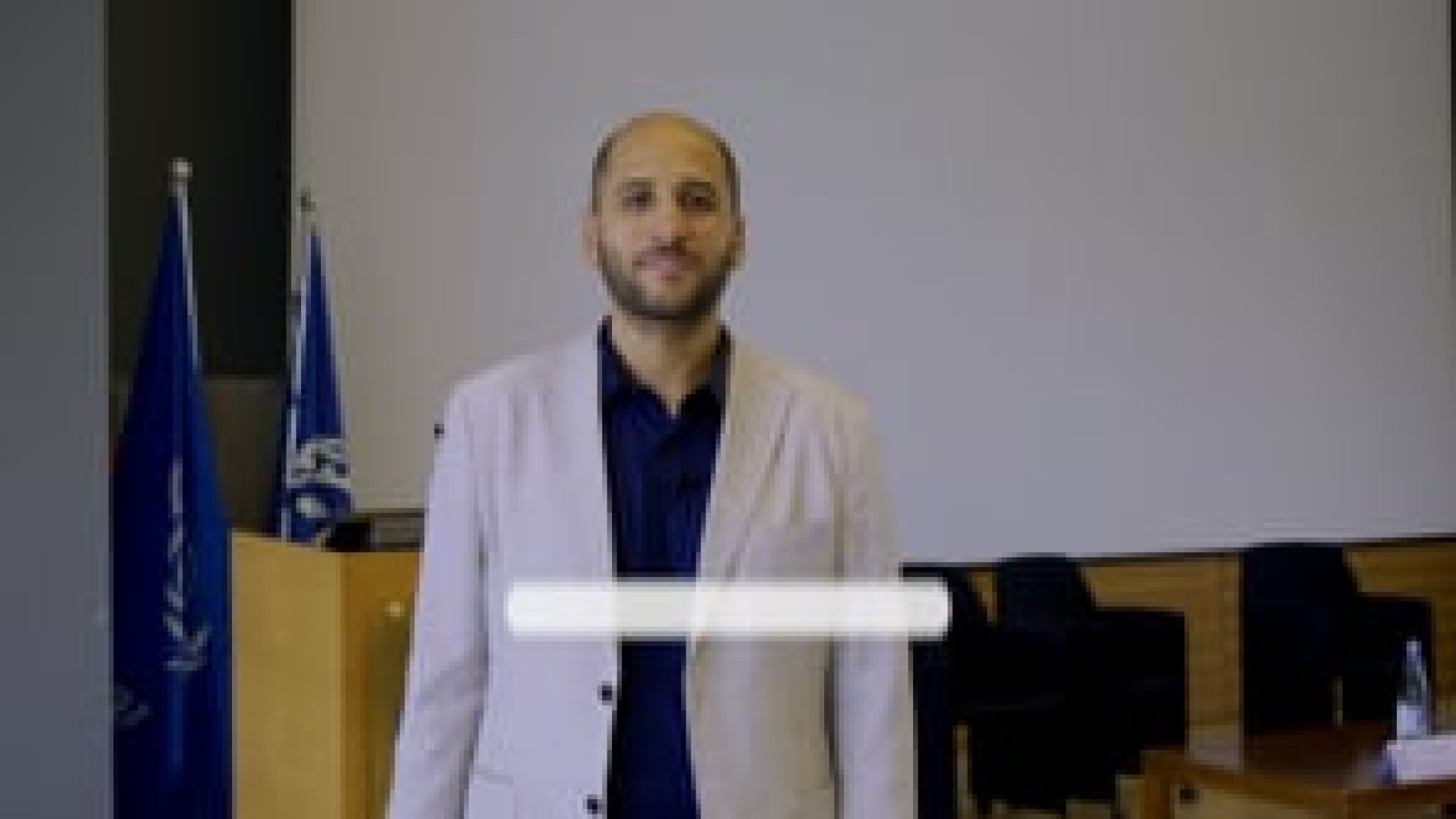2026 Labour Statistics & Analysis Academy

Photo © Adobe Stock/Expressive Pixel S
2026 Labour Statistics & Analysis Academy
STATISTICS FOR SOCIAL JUSTICE THROUGH DECENT WORK
23 Novembre–4 Dicembre 2026
Il corso è disponibile in English
" Learning about the fundamentals of labour statistics
and their role in shaping social justice with a focus on recent
global statistical developments and standards adopted by the
International Conference of Labour Statisticians (ICLS)."
Presentazione del corso
Strong statistical systems that collect, produce, and disseminate high quality labour market information remain critical for evidence-based policies that promote "full and productive employment and decent work for all" and the achievement of social justice. The demand for timely, reliable and relevant statistical data has been growing and gaining new relevance in a world defined by multitude of crises and threats on the one hand and the challenges and possibilities offered by global measurements, big data and artificial intelligence on the other. In 2023, the International Conference of Labour Statisticians (ICLS) held its centenary session addressing a number of crucial topics, including the measurement of informal economy and other key concepts such as care economy, earnings, classifications and labour migration. While progress in respect of the 2030 Agenda for Sustainable Development is being traced through the global indicator framework, now the ILO is also called on to measure progress towards the advancement of social justice. The innovative statistical standards set by the 19th, 20th and 21st ICLSs are crucial for the overarching goal of achieving social justice through decent work. Implementing these standards will also greatly contribute to monitoring progress towards the achievement of the SDGs. Following up on the successful 21st ICLS in 2023 that set an ambitious roadmap for labour statistics, the ILO Department of Statistics and the International Training Centre of the ILO (ITCILO) are proud to offer the 2026 Labour Statistics & Analysis Academy for data producers and users. The Academy offers a valuable opportunity to reflect on the ongoing challenges facing statistical systems and to learn about the latest developments in international statistical standards that are crucial for the achievement of social justice through decent work.
Chi si iscrive a questo corso?
The target audience for the Academy includes: - Labour Statisticians from: national statistical offices; Ministries of labour and related institutions (such as labour observatories); Other Ministries or Government institutions in charge of SDG statistical monitoring; employers' and workers' organizations; - Employment and development policy analysts from National Statistical Offices, Research and Academic institutions, International organizations and Donor organizations; and - Officials responsible for managing the production and dissemination of labour market statistics, particularly for the SDG national reporting.
Content
The Academy, alongside series of plenary sessions on recurrent and current topics, has two Learning Paths that provide integrated yet differentiated learning experiences.
- Learning Path 1 – STATA for data users and labour market analysts: Targeting officials involved in (or likely to be involved in) monitoring and reporting on SDG indicators at local, national or international level, and at labour market and development analysts. This path aims to develop and enhance knowledge on the production of several decent work indicators, especially those included in the SDG global indicator framework and related to informality. It will focus on data preparation, micro data management, and the use of statistical software in alignment with international standards. The software used in this Learning-Path is STATA, thus, basic skills of STATA are desired.
- Learning Path 2 – Producers of labour statistics: Targeting practitioners of labour statistics, both managers and technical staff from national statistical offices, ministries of labour and related institutions, (like labour observatories). This path focuses on the main elements of designing and implementing labour force surveys or similar household surveys as a key source of labour indicators. It will pay attention to ensuring coherence with ICLS standards on key work and labour market topics, many closely related to SDG indicators.
During the plenary sessions, the Academy will present key concepts and best practices relevant to both Learning Paths. In addition, there will be sessions dedicated to each of the Learning Paths allowing a differentiated learning opportunity for participants.
What will I learn?
The Academy aims to:
- Highlight recent global statistical developments following up on the 21st ICLS;
- Foster better understanding and operationalization of key international statistical standards including the 20th ICLS resolution on statistics on work relationships and the 19th ICLS resolution on work statistics;
- Expand knowledge on the measurement of decent work in the SDG Global Indicator Framework;
- Promote sound statistical data processing and analysis of indicators by demonstrating good practices in labour market information systems and SDG monitoring strategies;
- Review the main data production challenges and solutions identified in view of the multitude of crises and changes underway in the world;
- Explain the relevance of the ICLS standards to monitor social justice, including new topics of statistics on labour rights, care economy, labour migration and occupational safety and health;
- Highlight the importance of modernizing labour market data collection systems to make them more resilient
- Promote gender mainstreaming in the production and analysis of labour and work-related statistics.
Cost and financing
The academy is fee-paying. The cost breakdown is as follow:
- Tuition: €2,615
- Subsistence: €1,445 (includes lodging, accommodation, and meals for the 2-weeks duration of the Academy)
- Total: €4,060
Payments and cancellation
- Payments need to be received latest 14 days before the beginning of the course. Payment modalities will be communicated in the letter of acceptance. In the event of a cancellation, a participant may be substituted with another candidate. Cancellations remain free of charge if communicated latest 14 days prior to the start of the course.
How to apply?
Early application is strongly recommended since admission is competitive and space is limited.
Interested candidates should register on-line through this link: https://oarf2.itcilo.org/STF/A9017179/en
Selection will be based on the following criteria:
- Proven work experience in relevant field (e.g., data collection, processing, analyzing and interpretation; statistical reporting; labour force survey design);
- Submission of a letter of sponsorship to cover the course cost;
Kindly note that we need to receive the above-mentioned documents in order to register you for the Academy; the application form alone is not enough.
We highly encourage the participation of women and persons with disability.
The deadline for applications is 25th of October 2024
Important note: The application deadline has to be respected in order to leave ample time for participants to acquire a visa to enter Italy. The visa process is totally beyond the control of ITCILO and depends solely on the Italian embassy responsible for issuing visas to the participants.
Contacts
- Administrative arrangements can be coordinated through the following email (lmstats@itcilo.org);
- For the technical coordination, please also be in contact with the ITCILO programme officer Mr. Mostafa Mohamed (m.mohamed@itcilo.org).



